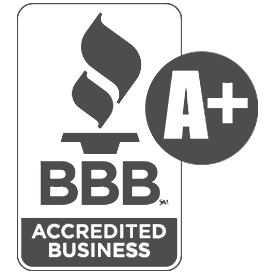Smart Mortgage and Tax Strategies for 2025 Homebuyers
Buying a home in 2025 involves more than choosing the right property; it requires careful financial planning. By understanding mortgage options and leveraging tax benefits, you can save money and simplify the home-buying process. This guide offers key strategies to help homebuyers make informed decisions and maximize their financial advantages.
Mortgage Planning Strategies
1. Evaluate Your Financial Readiness
Start by assessing your overall financial health:
-
Create a Budget: Include potential mortgage payments, insurance, and property taxes.
-
Monitor Your Debt-to-Income Ratio: Aim for a DTI under 43% to boost your mortgage approval chances.
-
Build a Reserve Fund: Set aside savings for unexpected expenses, such as repairs or moving costs.
2. Compare Mortgage Offers
Researching multiple lenders is crucial to finding the best deal:
-
Interest Rate Variations: Even a slight rate difference can significantly impact your monthly payment.
-
Loan Features: Understand the terms and flexibility of each loan option.
-
Closing Costs: Ask for itemized estimates to compare expenses across lenders.
3. Secure Pre-Approval
Pre-approval simplifies the buying process and strengthens your negotiation position:
-
Required Documents: Gather income proof, tax returns, and bank statements.
-
Loan Estimate: Use pre-approval to determine your borrowing capacity and potential interest rates.
4. Explore Specialized Loan Options
Consider loan programs tailored to specific needs:
-
First-Time Buyer Loans: Ideal for those new to the housing market.
-
FHA Loans: Lower down payments make these attractive for buyers with limited savings.
-
VA Loans: Exclusive benefits for veterans and active-duty military personnel.
Tax Planning Strategies
1. Leverage Tax Deductions
Owning a home offers significant tax advantages:
-
Mortgage Interest Deduction: Reduce taxable income by deducting interest paid on your loan.
-
Property Tax Deduction: Deduct up to $10,000 in state and local taxes, including property taxes.
-
PMI Deductions: If applicable, deduct private mortgage insurance premiums.
2. Understand Closing Cost Deductions
Some upfront costs can be deducted during tax filing:
-
Points Paid: Deduct loan origination points as prepaid interest.
-
Origination Fees: Some fees may qualify as deductions in the year they are incurred.
3. Take Advantage of Tax Credits
Homebuyers may qualify for credits to offset costs:
-
Energy Efficiency Credits: Save by installing energy-efficient windows, appliances, or solar systems.
-
State-Level Incentives: Check for local programs offering credits for first-time buyers or eco-friendly upgrades.
4. Plan for Long-Term Tax Savings
Owning a home provides ongoing financial benefits:
-
Capital Gains Exclusions: When selling a primary residence, exclude up to $250,000 ($500,000 for couples) in gains from taxation.
-
Home Office Deductions: If applicable, deduct a portion of your home expenses for work-related use.
Combining Mortgage and Tax Strategies
To optimize your financial approach:
-
Coordinate Payments: Align extra mortgage payments with tax savings goals.
-
Refinancing Benefits: Explore refinancing options to reduce interest rates and potentially qualify for new deductions.
-
Consult Professionals: Work with a mortgage advisor and tax professional to tailor strategies to your needs.
Conclusion
Navigating mortgage and tax planning as a 2025 homebuyer can be complex, but with the right strategies, you can simplify the process and maximize your savings. By evaluating your finances, exploring tailored loan options, and leveraging tax benefits, you’ll be well-equipped to achieve your homeownership dreams. Take advantage of these tips to make informed decisions and secure your financial future. This is not tax advice - seek a professional for individual guidance.




